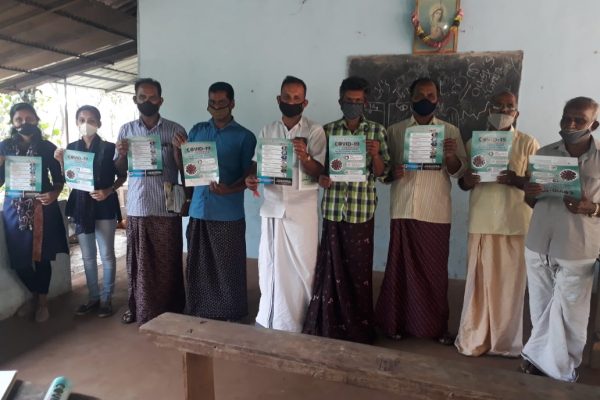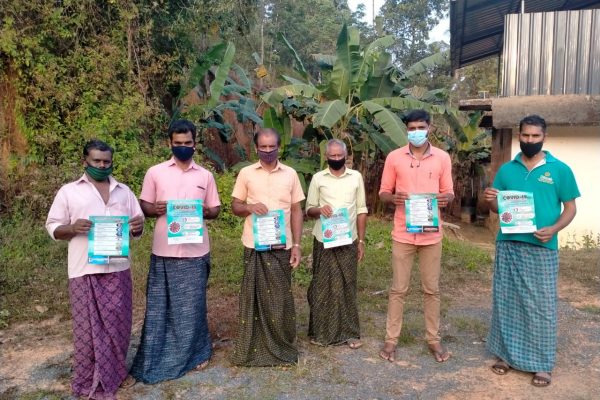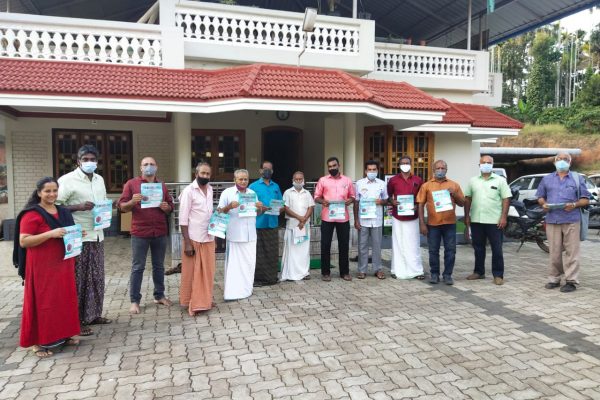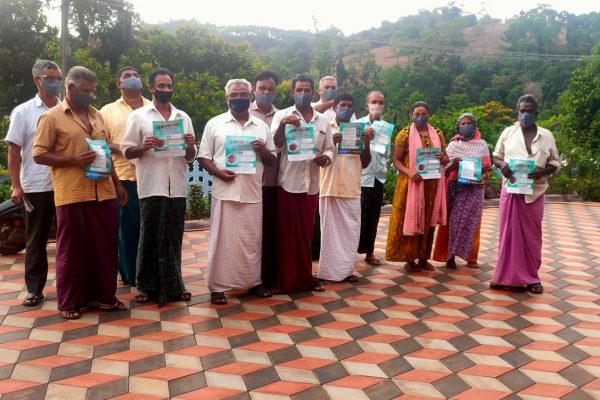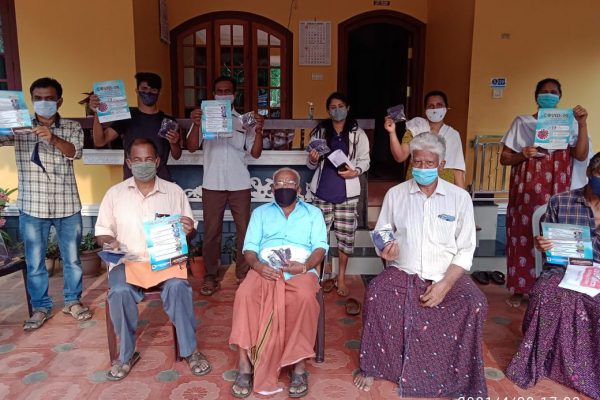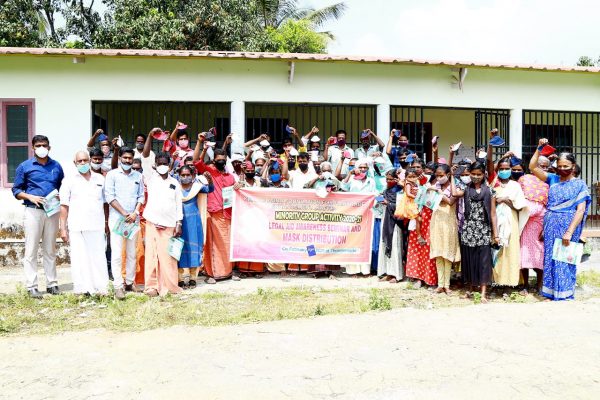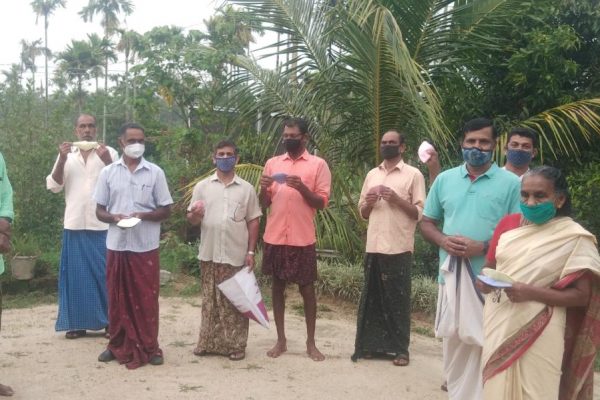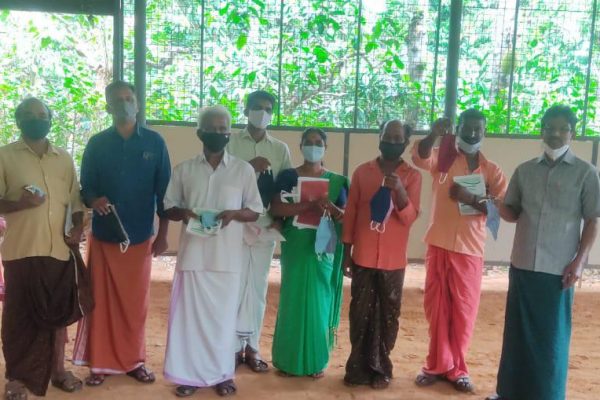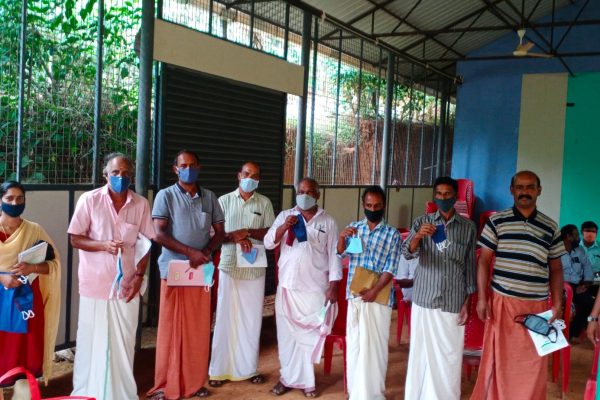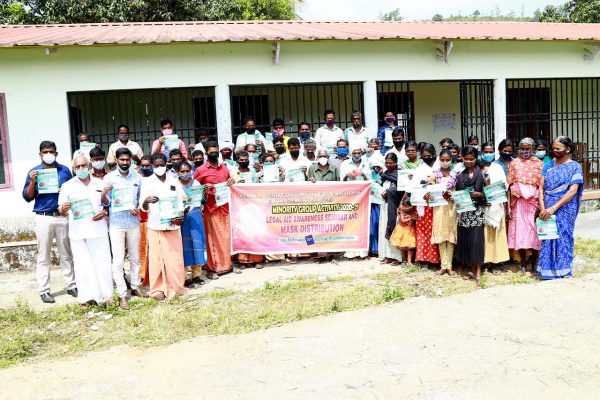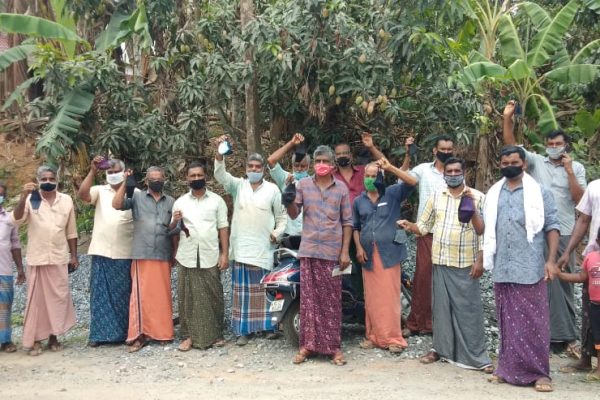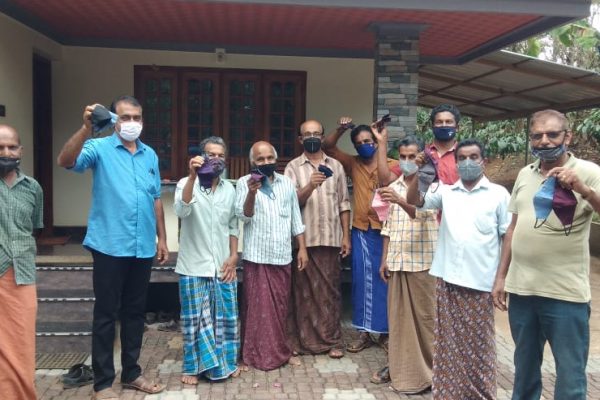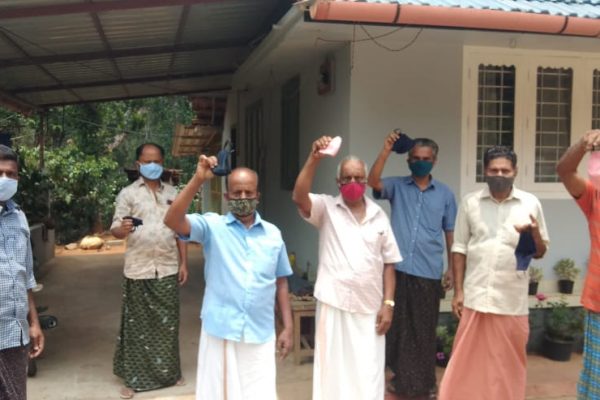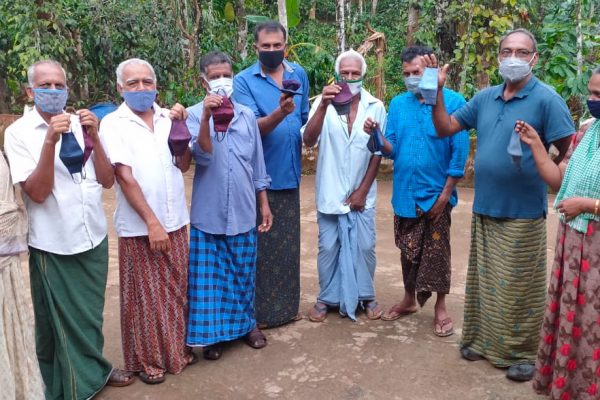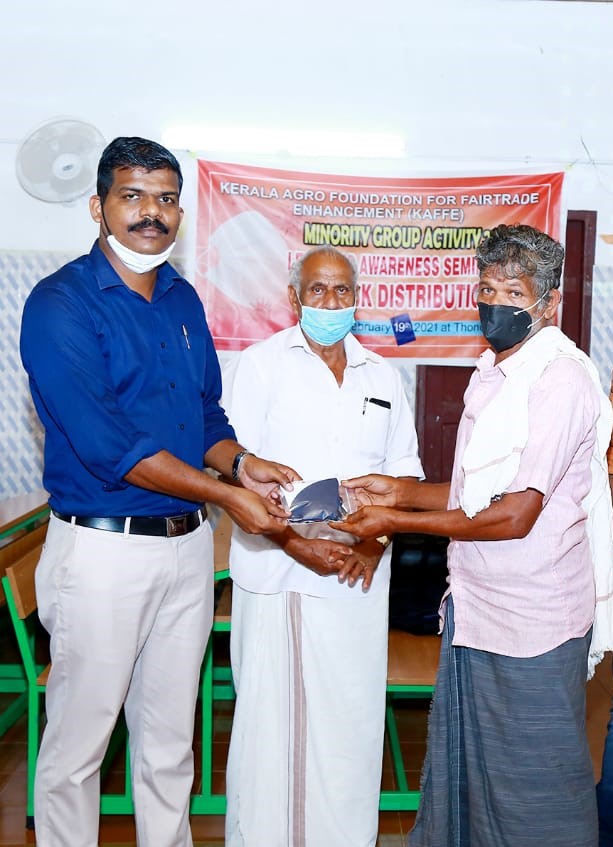COVID-19 Fairtrade Emergency Support funded by SECO builds the capacity of small and marginal farmers and tribal communities in Wayanad, South India to respond effectively to the health crisis.
Wayanad is a small, beautiful district in the state of Kerala in South India, inhabited by 20 percent tribal and 60 percent small-scale farmers. The repeated lockdowns restricted people from going to work which was a serious challenge for the district where wage labour is the main source of income for the population. The lack of income meant no sufficient means to procure medical essentials to protect themselves, less access to health services, or awareness about COVID 19, which made the community of small-scale farmers and tribal more vulnerable to the crisis.
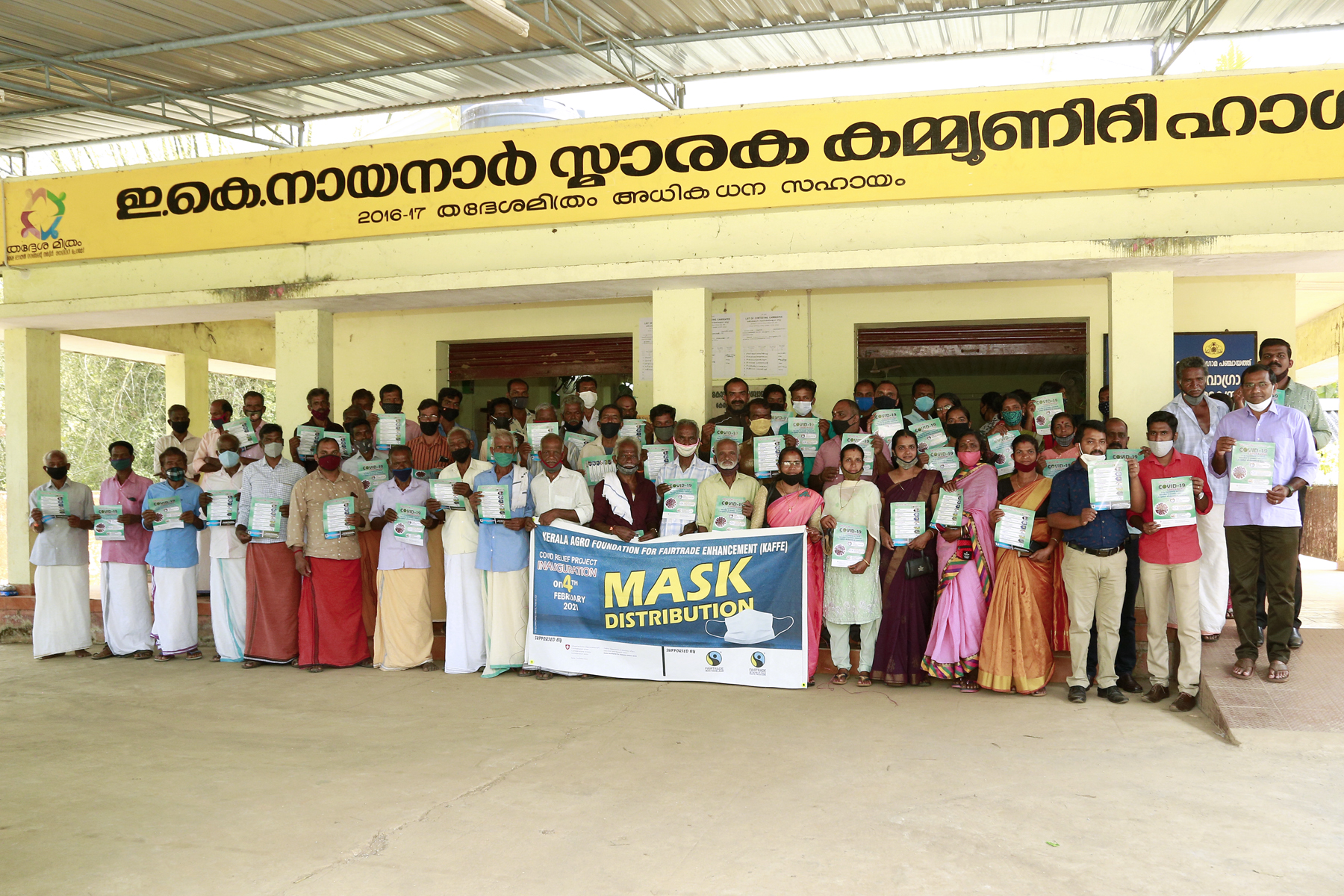
It was important to educate the population on the impact of COVID 19 and to provide them with sufficient protective measures to respond to the crisis. With an aim to reach 8000 small and marginal farmers including the tribal in Wayanad with immediate support, Kerala Agro Foundation for Fair Trade Enhancement (KAFFE), a Fairtrade coffee and spice cooperative located in Wayanad submitted a proposal under the ‘COVID-19 Fairtrade Emergency Initiative’. The Project was funded by State Secretariat for Economic Affairs SECO and supported by Max Havelaar Switzerland and Fairtrade NAPP.
Several COVID-19 Public Awareness programs and 100 COVID 19 Public service advertisements were aired through the community radio stations which are accessible to the majority of the households in the rural areas. The programs were produced and broadcast in both the Tribal dialect and local language for maximum outreach. Live phone-in sessions with medical practitioners were also organized through the community radio stations to answer queries related to COVID 19 and its preventive methods. KAFFE became a center point of contact for exchanging communications between the community and the various departments. Alongside the radio broadcast, 45,000 Informative brochures were printed and distributed in tribal hamlets and remote villages of Wayanad to further spread awareness. Over 05 lakh population was covered through the radio programs and brochure distribution.

